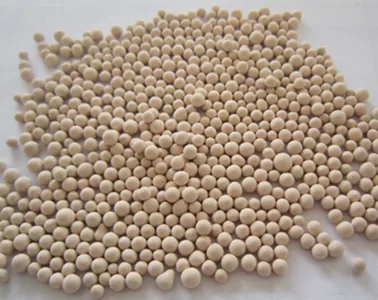Refined 3A molecular sieve requires stricter activation temperature control than standard grades, with the optimal range set at 220–280°C. This precision ensures its highly uniform 3-angstrom pores—critical for high-purity applications like pharmaceutical solvent drying—remain intact, avoiding structural damage that could reduce selectivity.

Heating below 220°C risks incomplete moisture removal, leaving residual water that impairs subsequent adsorption efficiency. Conversely, exceeding 280°C may cause subtle pore enlargement, allowing larger molecules to enter and compromising the sieve’s ability to target only water. The activation process often uses programmable ovens with inert gas purge, maintaining a steady ramp rate (30–50°C per hour) to prevent thermal stress in the refined molecular sieve packing.
In industrial setups, this temperature range balances thorough desorption and structural stability, making the refined 3A sieve suitable for applications requiring ultra-low moisture levels (below 5 ppm), such as electronic-grade ethanol production. Post-activation, cooling under dry nitrogen preserves the sieve’s activity, ensuring it retains 90%+ of its adsorption capacity over hundreds of cycles. This careful thermal management is what distinguishes refined 3A molecular sieve, enabling its use in the most demanding purity-critical processes.

